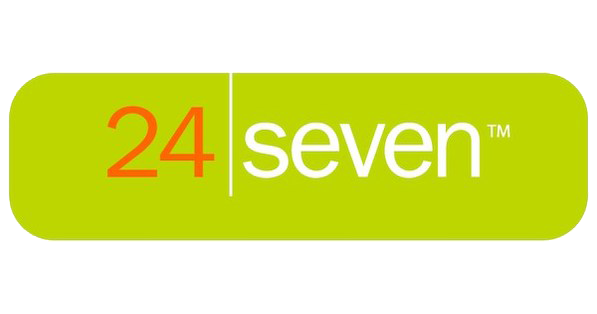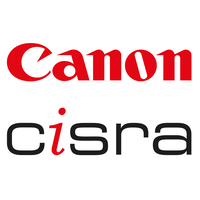In certain industries, specialized features are essential to cater to the unique requirements and challenges they face. At WNPL, we specialize in developing mobile apps with industrial-grade features that address the specific needs of various sectors, including manufacturing, healthcare, logistics, and more. Our expertise allows us to create robust and tailored solutions that optimize processes, enhance productivity, and drive efficiency within your industry.
At WNPL, we have a deep understanding of industrial requirements and challenges. Our expertise in developing industrial-grade apps allows us to design tailored solutions that optimize processes, enhance productivity, and drive growth within your specific industry.
Integration with IoT Devices and Industrial Automation Systems:
We understand the importance of integrating your app with Internet of Things (IoT) devices and industrial automation systems. By leveraging IoT technologies, we can connect your app to a network of smart devices, sensors, and equipment, enabling real-time monitoring, data collection, and control. This integration provides valuable insights, improves decision-making, and enhances automation and efficiency within your industrial processes.
Advanced Analytics and Reporting:
Our industrial-grade apps are equipped with advanced analytics capabilities that provide in-depth insights into your operations. By analyzing data collected from various sources, we can generate customized reports and visualizations that help you make informed business decisions. These insights enable you to identify trends, optimize workflows, and drive continuous improvement within your industry.
Integration with Enterprise Systems:
In many industries, integration with enterprise systems, such as Customer Relationship Management (CRM) and Enterprise Resource Planning (ERP) systems, is crucial. We have experience in seamlessly integrating your mobile app with these systems, ensuring smooth data flow and synchronization. This integration enables your app to leverage existing data and functionalities, improving collaboration, efficiency, and data consistency within your organization.
Compliance with Industry Regulations and Standards:
Different industries have specific regulations and standards that must be adhered to. Our team is well-versed in developing apps that comply with industry-specific regulations such as HIPAA for healthcare or FDA guidelines for medical apps. We ensure that your app meets the necessary compliance requirements, maintaining data security, privacy, and legal compliance within your industry.
Mobile Device Integration and Wearable Devices:
In certain industrial sectors, mobile devices and wearable technology play a critical role in day-to-day operations. We specialize in integrating your app with these devices, allowing seamless data exchange and interaction. Whether it's utilizing barcode scanning, RFID, or incorporating wearable devices for real-time monitoring and data collection, our solutions enhance efficiency and productivity within your industry.
Real-time Monitoring and Alerting:
In industries where real-time monitoring is crucial, our apps provide instant notifications, alerts, and monitoring capabilities. By utilizing push notifications, real-time data streams, and advanced monitoring features, we enable timely responses to critical events and ensure proactive management of operations. This empowers you to make informed decisions and take necessary actions promptly.
Important Considerations When Designing Mobile Apps for Industrial Use
When designing mobile apps for industrial use, it is crucial to consider specific factors that cater to the unique requirements of industrial environments. Here are some important considerations to keep in mind:
- Robustness and Durability:
Industrial environments can be challenging, with exposure to dust, moisture, vibrations, and extreme temperatures. Mobile apps designed for industrial use should be built with robustness and durability in mind. This includes selecting rugged hardware and designing user interfaces that can withstand harsh conditions.
- Accommodate Big thumbs:
In a factory setting, users have differing needs (e.g.: having big thumbs), which needs to be considered when designing the UI/UX of the app.
- Scalability and Flexibility:
Industrial operations often involve complex systems that may require scalability and flexibility. Mobile apps should be designed to accommodate the growth and changing needs of industrial environments. This includes designing modular architectures, integrating with existing systems, and providing customization options.
- Real-time Data and Connectivity:
Industrial processes often rely on real-time data for monitoring and control. Mobile apps should be capable of collecting and displaying real-time data from various sources such as sensors, machines, and databases. Seamless connectivity and synchronization with backend systems are critical for accurate and timely information.
- Enhanced Security:
Industrial operations deal with sensitive data, proprietary information, and critical infrastructure. Mobile apps designed for industrial use should prioritize security measures such as data encryption, secure authentication, and access control. Compliance with industry-specific security standards is essential to protect sensitive data.
- Integration with Industrial Systems:
Mobile apps used in industrial environments should seamlessly integrate with existing industrial systems, such as SCADA (Supervisory Control and Data Acquisition), MES (Manufacturing Execution Systems), and PLC (Programmable Logic Controllers). Integration allows for data exchange, control, and monitoring of industrial processes.
- Offline Functionality:
In industrial settings, network connectivity may be limited or intermittent. Mobile apps should have offline functionality, enabling users to continue working and capturing data even when not connected. Offline functionality ensures uninterrupted operations and data collection during temporary network disruptions.
- Ergonomics and Usability:
Industrial workers often wear protective gear or operate machinery, which can impact their ability to interact with mobile apps. Designing intuitive and user-friendly interfaces with large buttons, voice commands, or gesture-based interactions improves usability and ensures ease of use in industrial settings.
- Compliance with Industry Regulations:
Industrial sectors are subject to specific regulations and standards, such as those related to safety, environmental impact, and quality control. Mobile apps should adhere to these regulations, ensuring compliance and promoting safe and responsible operations.
- Remote Monitoring and Control:
Industrial mobile apps may require the capability to remotely monitor and control industrial processes and equipment. This includes features such as real-time monitoring of machine performance, remote troubleshooting, and the ability to adjust settings or initiate actions from a mobile device. Providing remote monitoring and control functionality empowers industrial operators to manage operations effectively.
- Integration with IoT Devices:
The Internet of Things (IoT) plays a significant role in industrial settings, where various devices and sensors are interconnected. Mobile apps designed for industrial use should be capable of seamlessly integrating with IoT devices, allowing for data collection, analysis, and control. This integration enables real-time insights, automation, and optimization of industrial processes.
- Compliance with Industry Standards:
Different industries have specific standards and regulations that govern their operations. When designing mobile apps for industrial use, compliance with these industry standards is crucial. This includes adhering to safety standards, quality control guidelines, and data privacy regulations to ensure that the app meets the required industry norms.
- Customization and Configuration Options:
Industrial environments can vary significantly, and different organizations may have unique requirements. Mobile apps should offer customization and configuration options to cater to these specific needs. This allows industrial companies to tailor the app's functionality, user interface, and data management to align with their specific workflows and processes.
- Real-time Notifications and Alerts:
Industrial operations often require immediate attention to critical events and situations. Mobile apps should provide real-time notifications and alerts to users, ensuring they are promptly informed about any anomalies, safety concerns, or urgent tasks. Push notifications, SMS alerts, or email notifications can help keep industrial personnel updated and enable timely response.
- Data Visualization and Analytics:
Industrial mobile apps should include advanced data visualization and analytics capabilities. This enables users to gain insights from the collected data, identify trends, and make data-driven decisions. Interactive dashboards, reports, and visual representations of data can facilitate analysis and provide actionable information.
- Seamless Integration with Enterprise Systems:
Industrial companies often rely on enterprise systems such as ERP (Enterprise Resource Planning) and CRM (Customer Relationship Management). Mobile apps should seamlessly integrate with these enterprise systems, enabling data synchronization, access to relevant information, and streamlined workflows. Integration ensures seamless data flow and promotes efficiency across the organization.
- Performance Optimization:
Mobile apps used in industrial settings should be optimized for performance to handle large datasets, complex calculations, and real-time processing. Performance optimization techniques such as code optimization, database indexing, caching mechanisms, and efficient network communication ensure that the app operates smoothly and provides a responsive user experience.
- User Authentication and Access Control:
Security is paramount in industrial environments. Mobile apps should incorporate robust user authentication mechanisms, such as biometric authentication, two-factor authentication, or secure login credentials, to ensure that only authorized personnel can access the app and its functionalities. Access control features enable granular control over user permissions and privileges.
- Disaster Recovery and Backup:
Industrial operations cannot afford data loss or downtime. Mobile apps should have robust disaster recovery mechanisms in place, including regular data backups, fault tolerance, and redundancy measures. In the event of a system failure or data loss, these mechanisms ensure quick recovery and minimal disruption to industrial operations.
- Documentation and User Manuals:
Providing comprehensive documentation and user manuals for the mobile app is essential in industrial environments. Clear instructions on how to use the app, troubleshoot common issues, and perform routine maintenance tasks help users understand the app's functionalities and maximize its potential.
- Ongoing Support and Maintenance:
Mobile apps for industrial use require ongoing support and maintenance to ensure their smooth operation. WNPL provides dedicated support and maintenance services to address any issues, implement updates and enhancements, and keep the app optimized and compatible with evolving technologies and platforms.
- Training and Onboarding:
Industrial mobile apps may require training and onboarding sessions for users to familiarize themselves with the app's features and functionalities. WNPL offers training programs and onboarding support to ensure that industrial personnel can effectively use the app, leverage its capabilities, and integrate it into their daily workflows.
- Continuous Improvement and Innovation:
WNPL is committed to continuous improvement and innovation in mobile app development for industrial use. We stay updated with the latest industry trends, technologies, and best practices to enhance our solutions continually. Our dedicated research and development team explores emerging technologies and identifies opportunities to incorporate them into our mobile app offerings.
Further reading
- "Industrial Automation: Hands-On" by Frank Lamb
This comprehensive book explores various aspects of industrial automation, including the integration of mobile apps. It covers topics such as SCADA systems, PLC programming, and mobile app integration for industrial control and monitoring.
- "Internet of Things for Architects: Architecting IoT Solutions by Implementing Sensors, Communication Infrastructure, Edge Computing, Analytics, and Security" by Perry Lea
This book provides insights into designing and implementing IoT solutions for industrial environments. It covers topics such as sensor networks, data communication, edge computing, and security considerations for building robust and scalable industrial IoT systems.
- "Industrial Internet of Things: Cybermanufacturing Systems" by Sabina Jeschke, Christian Brecher, Houbing Song, and Danda B. Rawat
This book explores the concept of the Industrial Internet of Things (IIoT) and its impact on industrial operations. It covers various aspects of IIoT, including mobile app integration, data analytics, cybersecurity, and smart manufacturing.
- "Industry 4.0: The Industrial Internet of Things" by Alasdair Gilchrist
This book provides an overview of Industry 4.0, focusing on the convergence of IoT, data analytics, and industrial automation. It covers the integration of mobile apps into industrial processes and highlights the benefits and challenges of implementing Industry 4.0 solutions.
- "Mobile Computing, Applications, and Services: Second International ICST Conference, MobiCASE 2010, Santa Clara, CA, USA" edited by Ramón Cáceres and Zahir Tari
This conference proceedings book features research papers and case studies related to mobile computing and applications. It includes discussions on mobile apps for industrial use, their development, implementation, and best practices.
- "Mobile Application Development, Usability, and Security" by Subhasish Dasgupta
This book provides insights into mobile application development, usability, and security aspects. It covers topics such as user experience design, mobile app testing, and security considerations in developing mobile apps for industrial environments.
- "Mobile Industrial Robots: Towards New Applications for Robots in Industry" by Walter Göhring and Christoph Hertzberg
This book explores the application of mobile robots in industrial settings. It discusses various use cases, including the integration of mobile apps for controlling and monitoring mobile industrial robots.
- "Industrial Mobile Apps for Android and iOS" by Michael Juntao Yuan
This book focuses on developing industrial mobile apps for Android and iOS platforms. It covers topics such as user interface design, data visualization, and integration with industrial systems, providing practical guidance for building robust and user-friendly mobile apps.









